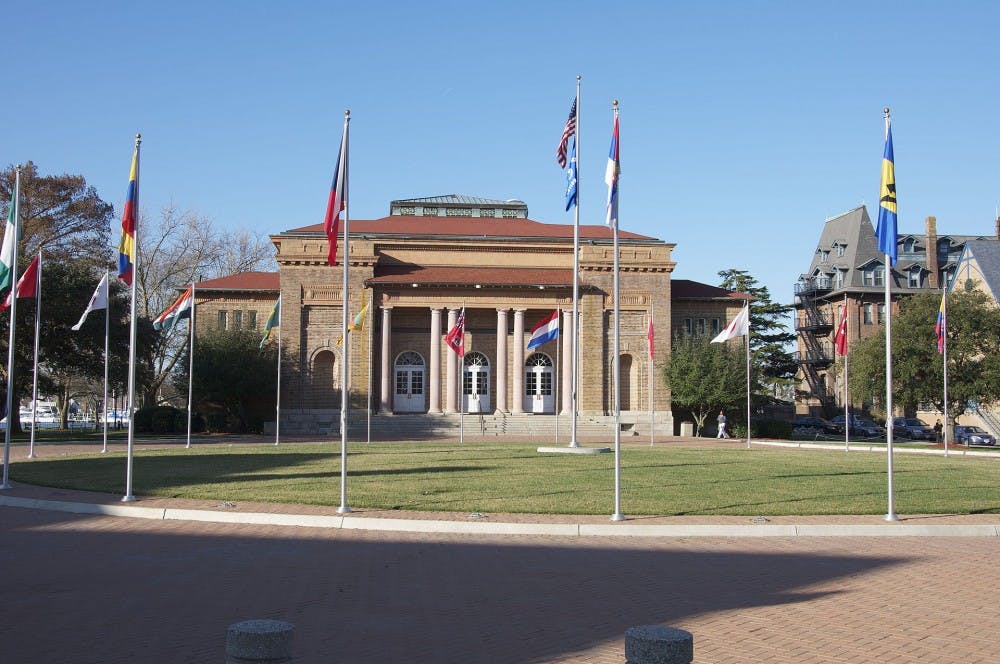Since Hurricane Dorian stormed through the Bahamas earlier in September, inhabitants of the islands have lost their homes, loved ones and even their own lives. As of September 9, the death toll has risen as high as 45 people, but it’s expected to rise significantly in the coming weeks. Additionally, over 13,000 homes and businesses have been destroyed — humanitarian and reconstructive work must be done on the islands before its inhabitants can return to normalcy.
Acknowledging the severity of this damage, Hampton University announced its plan to partner with the University of the Bahamas to aid students on the island who may have been affected by the recent disaster. On September 5, Hampton invited students at the University of the Bahamas-North who have been displaced by Hurricane Dorian to attend Hampton tuition-free and with room and board for one semester at no extra cost. If they so choose, these students will also have the option to stay at Hampton University after this semester but will have to pay regular tuition and room and board fees.
In light of this partnership between the two institutions, the University should reevaluate its role as a public institution and consider how it could help those in need. Hampton has an endowment of $263.2 million, compared to the University’s $9.5 billion endowment. Furthermore, the median family income of a student from Hampton is $74,900, while the median family income of a student from here at the University of Virginia is $155,500. Comparatively, the University is far more equipped to offer some form of aid to students who have been affected by Hurricane Dorian.
While the aid provided by Hampton will surely be appreciated, the humanitarian responsibility the institution is taking on should not necessarily fall on their administration. In addition to the significantly lower endowment that Hampton has in comparison to the University, it is a historically black college with increasingly limited resources.
Historically black colleges across the US have faced declines in funding and enrollment over the past few years. In fact, between 2010 and 2016, enrollment overall at HBCUs dropped 11 percent. Due to low enrollment, many HBCUs are facing financial trouble, making it difficult to keep their doors open. For example, Bennett College — an all women’s HBCU — was at risk of losing its accreditation due to its financial instability brought on by low-enrollment. Therefore, while Hampton’s plan is a fantastic example of aid to a population in need, the institution is also subject to financial pressures. Hopefully its partnership with the University of the Bahamas can serve to call on other institutions with sufficient resources to make similar strides.
If the University strives to be a “great and good” institution — as President Jim Ryan’s plan 10-year strategic plan aims to do — administrators should follow the example that Hampton has set. According to Ryan’s vision for 2030, “universities will be judged in part by how well they are run and whether they are ethical institutions— whether they are great places to work and good partners with their surrounding communities.” Furthermore, the plan aims to “offer accessible and affordable educational programs to those beyond our Grounds.”
As claimed in Ryan’s 2030 plan, this goal of helping communities that span beyond Grounds can also coexist with continuing to make efforts for low and middle-income students here at the University. One of Ryan’s “key initiatives” for his plan is to expand financial aid through SuccessUVA, which will go beyond the aid programming that AccessUVA provided. Therefore, the University already wishes to make a global impact while continuing to give its students from all socioeconomic backgrounds ample opportunity to succeed. Due to the severity of the impacts of Hurricane Dorian, following the example of Hampton University should be one of the ways in which the University makes this impact beyond Grounds.
While students in the Bahamas — and elsewhere affected by Hurricane Dorian — are not in the immediate Charlottesville community, the University is a national institution that should expand the scope of its ethical responsibility. If Ryan wishes to lead the University in a way that embodies the values and goals set out by his ten-year plan, he must go beyond what is expected of the University solely as an institution of higher education. In light of the hurricane, the University has the opportunity to be truly good and to serve those in need. Hampton University has already stepped up to this task, now it is our turn.
Victoria Mckelvey is the Senior Associate Opinion Editor for The Cavalier Daily. She can be reached at v.mckelvey@cavalierdaily.com.







